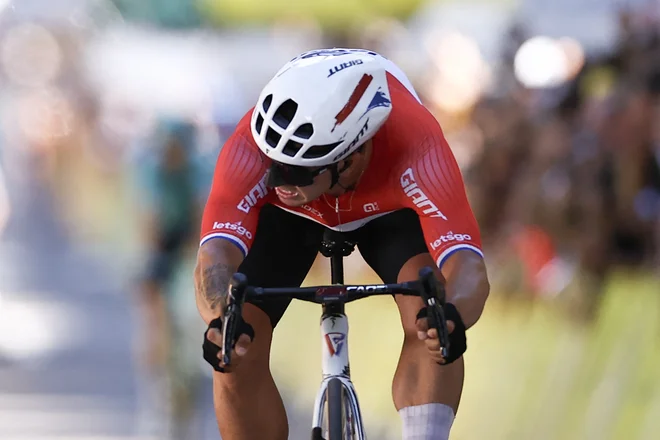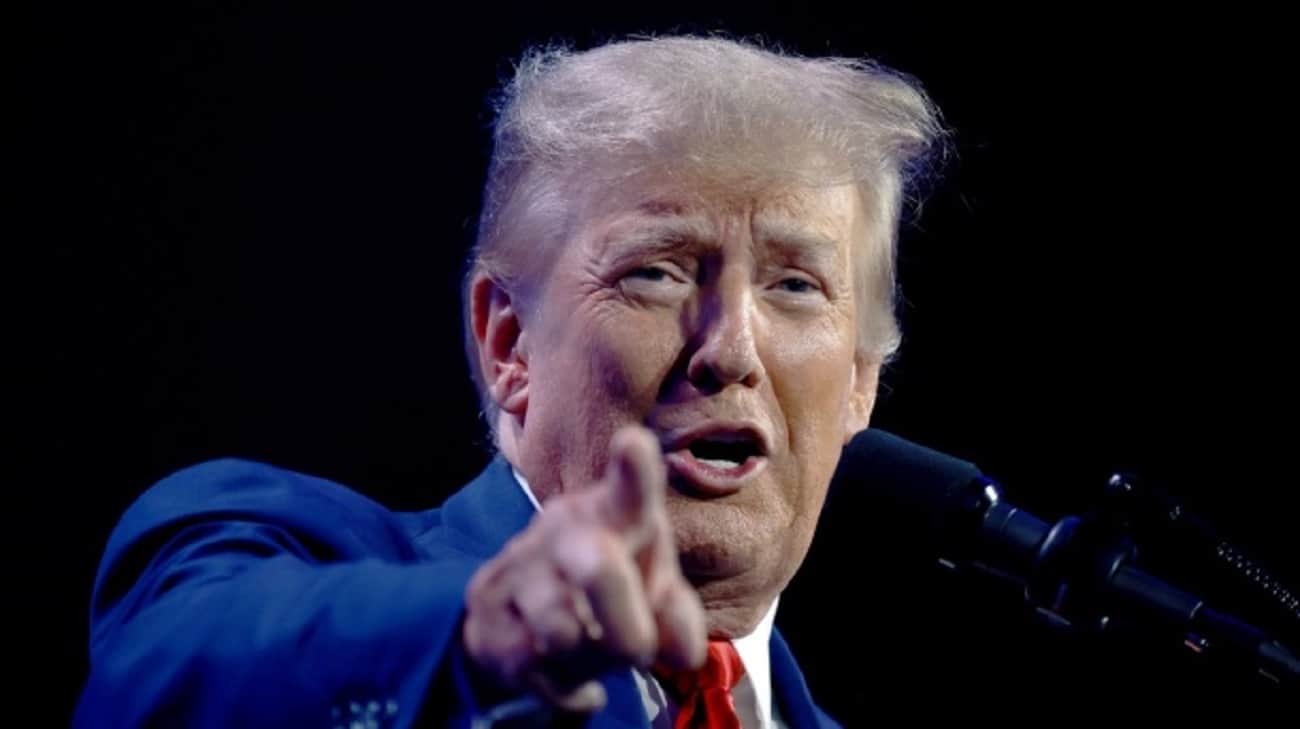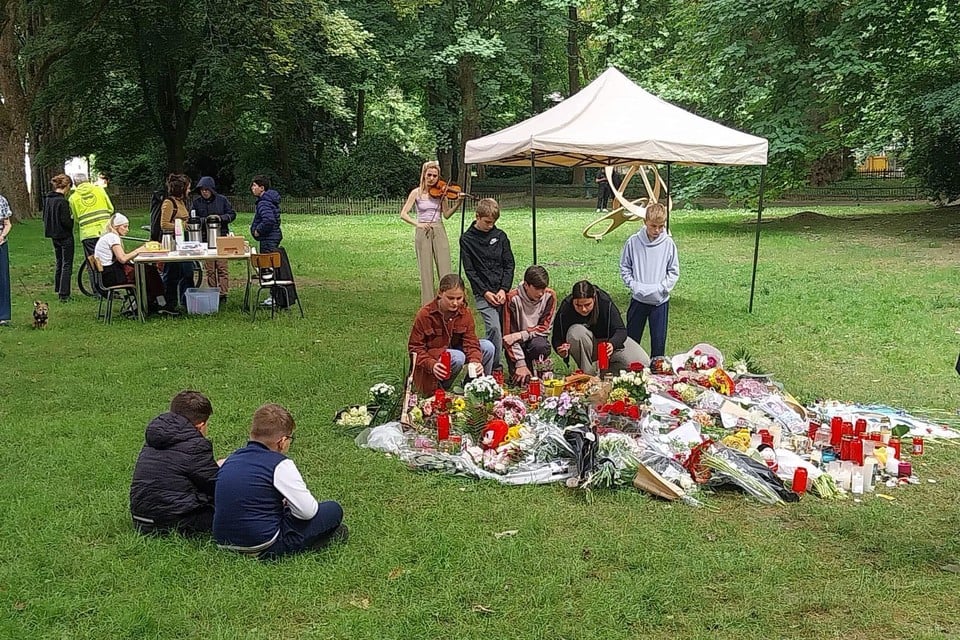A explorer with a volcanic character
:strip_icc()/s3/static.nrc.nl/bvhw/files/2025/05/junghun.jpg)
It has often been said about the volcanoes on Java that they have a magnet: anyone who has been to Indonesia once and saw the majestic cones praise above the landscape, was kicked by it – and attracted. This applies pre-eminently to the Prussian-Dutch natural forser and explorer Franz Junghuhn (1809-1864), who did botanical and geological research on Java. The volcanoes in particular exerted an irresistible attraction on him, so that he decided to climb as much as possible of the 45 active; He took fifteen.
Already at his first sight of Java in October 1835 from the Dutch sailing ship Jacob Cats, he was delighted about the splendor of « the dense vegetation and the tall palm trees that reached out above the bunches as a column gallery », as he writes in a letter to a fellow botanist. With some interruption, he would stay on Java for more than thirty years and die there, in Lembang.
Indonesia, or rather the former Dutch East Indies colony, plays a crucial role in Junghuhn’s life and work. In the new biography of Junghuhn by historian Ulbe Bosma, the volcano has penetrated into the title, Living on a volcano. Franz Junghuhn, a biography. Junghuhn has been written frequently before, including one Vie Romancee from 1940; Literaryists such as Rob Nieuwenhuys and EM Beekman, historian Lex Veldhoen of Historik.nl and philosopher and Marxist Ger Harmsen also devoted detailed life sketches to him. The German scientist Renate Sternagel released a critical biography in 2011, Der Humboldt von Java. As well as the Dutch edition with a stylized volcano on the cover.
One big adventure
It is understandable that Junghuhn’s life and work appeal to the imagination. His life is one big adventure, both scientifically and personally. He was born in a poor family in the Harz Mountains with a strict father and had to demolish his medicine study for financial reasons, made a suicide attempt, dueled with a fellow student who insulted him and was then locked up in a dungeon in Koblenz, because there was a ban on duel. Junghuhn registered with the French Foreign Legion as army doctor in Algiers. Eventually he ended up in Dutch colonial service in the East through the University of Leiden.
The academic circles in Leiden drove Junghuhn occasionally to frenzy. He regularly argued with one of the botanists, CL Blume (1796-1862), who sent boxes with Indonesian flora who sent Junghuhn to the university falsely to his own and did so-called study. In fact, he copied Junghun’s findings. The representation of the ambitious and at the same time small academic world is a feast to read. The impulsive Junghuhn repeatedly came into conflict with his superiors. Bosma characterizes him as « boundless, reckless, self -deeply ».
In India, the restless natural scientist found enough material for his boundless research urge. He immersed himself in the plant growth and the culture crops on Java, including the malaria -resistant quinine. Volcanoes and volcanic rocks continued to fascinate him. For example, why are the volcanoes on Java lengthwise across the entire island, as in a neat series? The ‘volcano’ from the title places Bosma in a wider perspective, almost psychological: Junghuhn had a volcanic, explosive character.
Von Humboldt
His great example was the German natural scientist Alexander von Humboldt (1769-1859), the one with Cosmos (1845) The founder was for contemporary ecology, the study of coherence in nature. Junghuhn wanted to become the « humboldt of Java » in a ruthless way, an honorary title that he eventually gained. Bosma goes far in his blind admiration for Humboldt; The great German appears in the biography dozens of times. A friendship from mutual admiration arose between the two scientists. Humboldt quotes in Cosmos Junghuhn and sent him a rave letter because he « shed a long -awaited light on the properties of Java’s earth’s crust. » In the interesting biography of Andrea Wulf about Humboldts, even adventurous life, The inventor of nature (2016), people are looking for Junghuhn in vain. That’s remarkable. Inquiries show that the biographer of Von Humboldt did not want to treat all friendships and correspondences in her book, which was not intended as an exhausting biography, « but as an ideas history. »
Bosma characterizes Junghuhn as a « romantic scientist » in the tradition of Goethe, Schelling and Novalis, the advocates of German idealism. They considered nature a inspired unity and Junghuhn goes along with this. He liked to sign himself on the edge of a crater, such as that of the Merapi, as a form that peers in the distance with a viewer: the scientist at Veldexpedition.
In his studies like Java, his shape (1850-1854) and Light and shadow images from the interior of Java (1854) He describes in the spirit of Humboldts Cosmos the volcanic forms and the coherence between height and plant growth. He notes that the stroke of forests in favor of plantations disrupts the natural balance, with all the dramatic consequences that that entails. Because Junghuhn is the service of the colonial rule, he praises on the one hand the construction of plantations, on the other hand he blames Indonesian farmers for cutting down trees. This double morality, deeply anchored in the colonial past, explains Bosma nicely, albeit more reluctant than Sternagel that sharply Junghuhn’s ambivalence between ‘economy’ and ‘ecology’.
Volcans were not only something to admire, but also to fear: active volcanoes were life -threatening, especially at a time when there were no seismographic research yet. With the help of targeted observations, Junghuhn would have liked to predict the behavior of volcanoes and their outbursts. He thought of the first volcanological observatory in the world, founded in 1841 on the slope of Vesuvius. However, he did not find a real solution.
Bosma’s biography, unlike Wulf about Humboldt, is also a psychological portrait. Junghuhn’s imprisonment, for example, in his tumultuous childhood, always returns like a motive: it would explain his urge to freedom and unconventional behavior. It is a daring perspective, but one that fits Junghuhn’s lightly flammable character. And especially his boundless ambition.
Read also
A hero for our time

:format(webp)/s3/static.nrc.nl/images/2016/06/18/stripped/1806zatwethumboldt.jpg)
/s3/static.nrc.nl/images/gn4/stripped/data133227375-e49eec.jpg|https://images.nrc.nl/OfCmw4ELdWxY3U-WzP_kS9p7N94=/1920x/filters:no_upscale()/s3/static.nrc.nl/images/gn4/stripped/data133227375-e49eec.jpg|https://images.nrc.nl/lR7DmIObH7P_IgUv2gg2A-sTmyk=/5760x/filters:no_upscale()/s3/static.nrc.nl/images/gn4/stripped/data133227375-e49eec.jpg)
:format(webp)/s3/static.nrc.nl/images/gn4/stripped/data130955831-6bc210.jpg)




